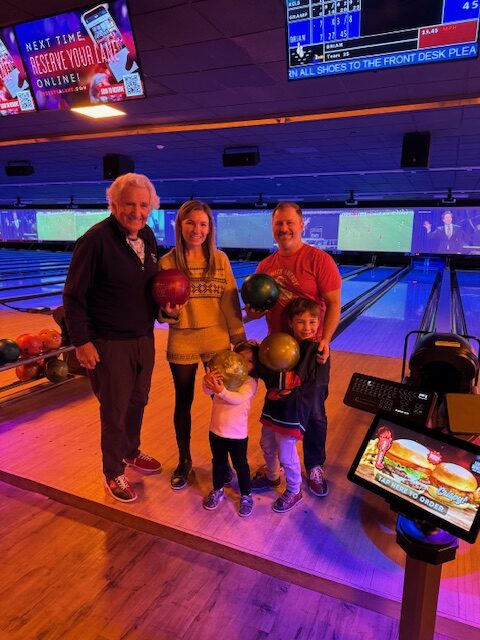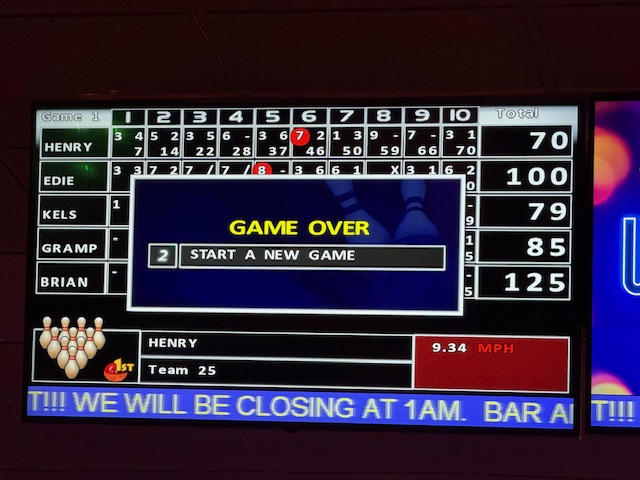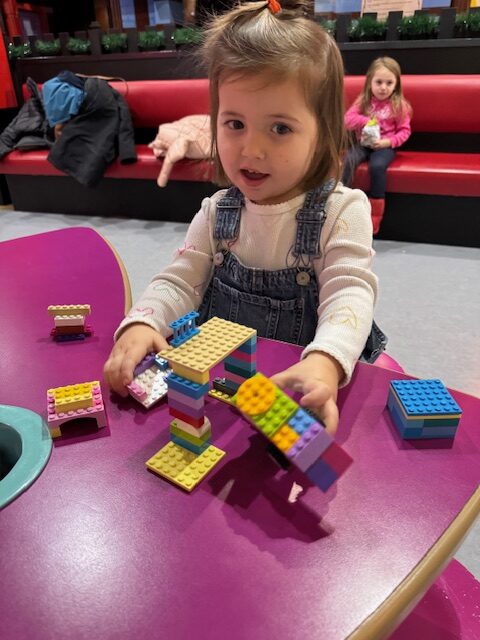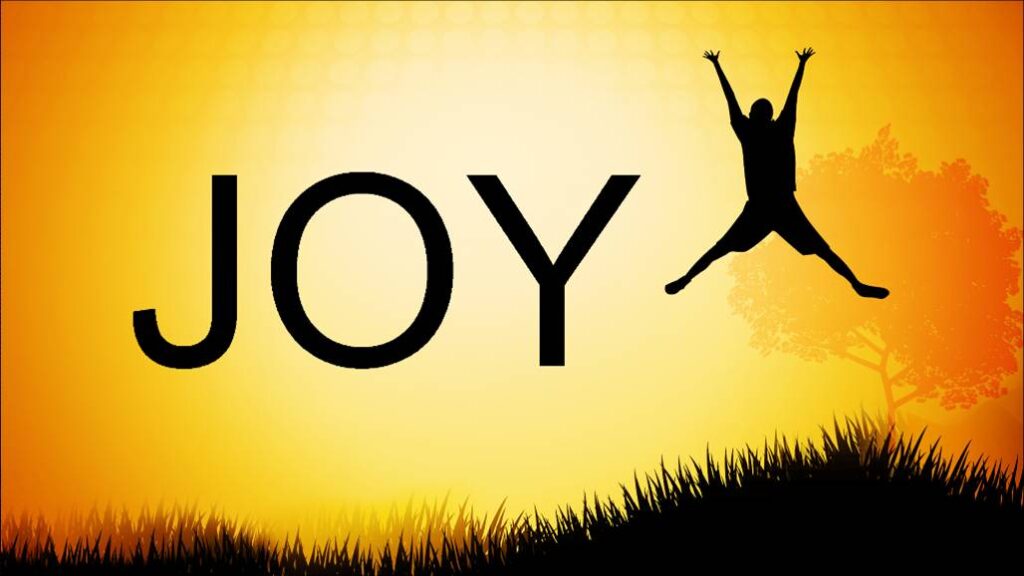
This past weekend, I went bowling with my daughter, son-in-law, and my two grandchildren, ages six and three. It was one of those simple, joyful outings—the kind that leaves you with a warm glow long after it ends. But, if I’m being honest, it also left me with a whirlwind of emotions I’m still trying to untangle.

Let me cut straight to it: my three-year-old granddaughter, Edith—Edie, as we call her—beat me. And not by a little. She bowled a solid 100. I, her 80-year-old grandfather, bowled an 85.

First, let me say a word about Edie. I love her so much. In addition to being such a delightful child, she was named after my grandmother, who was by far the most important person in my life growing up. Her name carries a legacy of love and strength, and seeing her joy that day added another beautiful chapter to that legacy.

But, back to the bowling. Now, let’s address the obvious: yes, she used a ramp to guide the ball down the lane. Yes, there were guardrails in place to prevent gutter balls. But the score is the score. She beat me fair and square.

Here’s the thing—I wasn’t letting her win. Not even a little. I’m a competitive person by nature, and every ball I rolled, I rolled with intention, focus, and a sincere desire to do my best. Yet, there I was, frame after frame, watching her brightly colored bowling ball bounce its way down the lane and knock over more pins than mine.
My immediate reaction was twofold. First, pure pride. The sight of her little face lighting up every time the pins fell, her tiny arms shooting up in celebration—it was pure magic. She was confident, joyful, and completely unbothered by the mechanics of the game. She was just enjoying herself, and in doing so, she succeeded. How could I not be proud?
But then, there was the other side. The sting of embarrassment. The creeping feeling of humiliation. Beneath those surface emotions, there was also a sense of vulnerability—a quiet acknowledgment of my own limitations.
Losing to a toddler, even in something as lighthearted as bowling, stirred feelings of a loss of control and a subtle questioning of self-worth. How could someone who once prided himself on being capable, sharp, and competitive lose so handily to someone barely out of diapers? These emotions are raw, and they reveal just how deeply our identities can be intertwined with our perceived competence, even in the smallest of contests. I’m 80 years old. I’ve lived a full life, accomplished much, faced challenges head-on, and yet… I lost to a toddler in a bowling game.
In the days since, I’ve found myself reflecting on this experience. Why did it bother me so much? Why couldn’t I just let the joy of her success overshadow my bruised ego?
I think the answer lies somewhere in the intersection of aging and identity. Moments like this force us to confront the delicate balance between how we see ourselves and how reality reflects back at us. For much of our lives, our identity is built on our abilities—our competence, our strength, our resilience. But aging has a way of subtly chipping away at those cornerstones, reminding us that the skills and strengths we once took for granted may not always be there.
Losing, especially in such an unexpected way, can feel like a crack in that carefully constructed sense of self. It challenges not just our physical abilities but also our emotional resilience, making us question how much of our worth is tied to what we can still do versus who we fundamentally are. There are moments as we grow older when we are forced to confront our limitations—when the world gently (or sometimes not so gently) reminds us that time has had its way with us.
But these moments aren’t experienced in a vacuum; they are shaped by societal expectations around aging and what it means to remain ‘capable’ or ‘strong.’ Society often celebrates youth, agility, and achievement, while quietly sidelining the contributions and value of older generations. In a world that so often equates success with physical ability or competitive prowess, moments like this can feel like a symbolic loss—not just a game, but a reflection of where we stand in the grand narrative of our lives. It’s a humbling reminder that aging isn’t just a physical process, but an emotional and societal one as well. This was one of those moments.
But here’s the lesson I’m choosing to take away: joy doesn’t keep score.
Children approach competition with a refreshing innocence—they aren’t weighed down by ego, pride, or societal expectations. My granddaughter wasn’t focused on outscoring me; she was focused on the thrill of watching pins fall and celebrating every success, big or small. For her, the joy was in the act itself, not the outcome. As adults, we often measure our self-worth by achievements and results, but children remind us that resilience comes from embracing the process, not just the victory. It’s a mindset worth carrying forward, no matter our age.
Edie wasn’t thinking about beating me; she was thinking about having fun. She wasn’t comparing herself to me; she was living fully in the moment. And isn’t that what life—at any age—is supposed to be about?
So yes, I lost to a three-year-old. And yes, part of me still winces at the thought. But a bigger part of me feels lucky—lucky to have been there, lucky to have shared that moment with her, and lucky to have been reminded that sometimes the best victories aren’t measured in numbers.
Next time we go bowling, I’ll still try my hardest. But I’ll also try to channel a little more of her unfiltered joy and maybe, just maybe, care a little less about the final score.

What a great event for your family. Congratulations to Edie for her 100 score.
You are not only lucky, but blessed
At least you bowled your age.
Great posting!! Loved it!! Truly life’s greatest blessings.
Bravo, Neil!! And beautifully written!
Baze